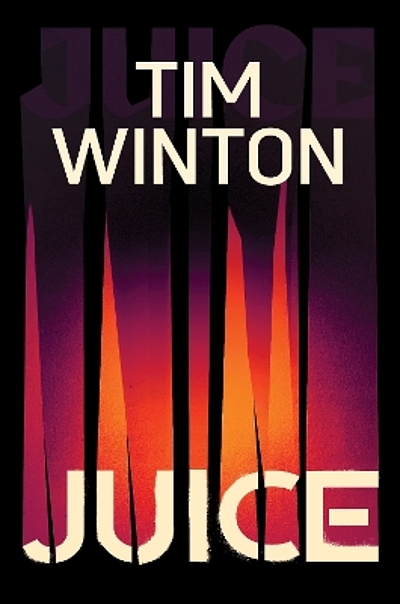Two fugitives, a man and a child, drive all night across a stony desert. As dawn breaks they roll into an abandoned mine site. From the vehicle they survey a forsaken place – middens of twisted iron,
Tag: Tim Winton
Georgie, the heroine of the book, becomes fascinated while watching a stranger attempting to poach fish in an area where nobody can maintain secrets for very long; disillusioned with her relationship with the local fisherman legend Jim Buckridge, she contrives a meeting with the stranger and soon passion runs out of control between two bruised and emotionally fragile people.
The secret quickly becomes impossible to hide, and Jim wants revenge, whilst the poacher hikes north via Wittenoom (out of respect for his father who died of mesothelioma in the town) and Broome to an island off the remote coast of Kimberley beyond Kununurra to escape a confrontation. His subsequent struggles to survive in the hostile environment, knowing that he must try to literally cover his tracks, give this book its gripping denouement.
Dirt Music is a big sprawling novel about the ancient Australian land, about loss, life, death, and redemption, about change and stagnation, but above all about love, and its power to change people. Peopled with small, recognisable, and believable characters, and deep, intense themes, the prose is poetic, and powerful, and at times, the structure experimental, but it is possible to read this book solely for the plot. Fast, engaging, and stunningly beautiful, Dirt Music is the kind of book that can, and should be read, and re-read.
In regards to the characters, I really enjoyed the contrasts, both technically and personally:
Tim: Different tenses and perspectives offer you different things. It helps to distinguish the world that they are in. I used the different tenses to make them seem to be inhabiting worlds of their own – a voice, or tool that they could use to express their personalities, and experiences. Past tense offers authority, distance, and present tense offers emotional immediacy. This technique isn’t new. People have been doing that since long before the birth of modernity. It was just a means for allowing the reader to experience these characters from their own perspective.
It was a strange novel. I kept looking for something drastic to happen, only to realise that things were happening all of the time, crashing over us like waves. Sometimes we just have to notice.
My favourite part of the novel was the description of space. For me, I was taken back to my time in Lancelin a few years ago. I remember travelling north to see the Pinnicles, but we never ventured beyond that. Sadly, I never got the promised fresh lobster. As a place, I always had a feeling that there was always something more happening. Maybe there always is.
Cloudstreet is a novel by Australian writer Tim Winton published in 1991. It chronicles the lives of two working-class families, the Pickles and the Lambs, who come to live together in a large house called Cloudstreet in Perth over a period of twenty years, 1943 to 1963. The novel received several awards, including a Miles Franklin Award in 1992, and has been adapted into various forms, including a stage play and a television miniseries.
📓 Novel as Tool or Toy?
A novel is more than a tool, it is a toy … Somehow it is the useless things that gets its hooks into us.source
What I’ve come to notice is that all these kids are rehearsing and projecting. Trying it on. Rehearsing their masculinity. Projecting their experimental versions of it. And wordlessly looking for cues the whole time. Not just from each other, but from older people around them, especially the men. Which can be heartbreaking to witness, to tell you the truth. Because the feedback they get is so damn unhelpful. If it’s well-meant it’s often feeble and half-hearted. Because good men don’t always stick their necks out and make an effort.
In the absence of explicit, widely-shared and enriching rites of passage, young men in particular are forced to make themselves up as they go along. Which usually means they put themselves together from spare parts, and the stuff closest to hand tends to be cheap and defective. And that’s dangerous.
Toxic masculinity is a burden to men. I’m not for a moment suggesting men and women suffer equally from misogyny, because that’s clearly and fundamentally not true. And nobody needs to hear me mansplaining on the subject of the patriarchy. But I think we forget or simply don’t notice the ways in which men, too, are shackled by misogyny. It narrows their lives. Distorts them. And that sort of damage radiates; it travels, just as trauma is embedded and travels and metastasizes in families. Slavery should have taught us that. The Stolen Generations are still teaching us. Misogyny, like racism, is one of the great engines of intergenerational trauma.
Along with Molly Ringwald’s reflections on the problematic art of John Hughes and Phil Cleary’s post on the misogynistic subculture of football, they represent a challenge for equity.
It is also interesting reading these pieces alongside Kate O’Halloran’s article on the fear associated with women exercise.
One of the biggest issues for women was the difference between theirs and men’s “entitlement” to space. At 53, [Lisa Schuppe] is a keen surfer, but has only recently taken up the sport again after her experience as a girl who wanted to surf just like her friends who were boys – but was instead treated inequitably.
Here is a longer version of the speech


